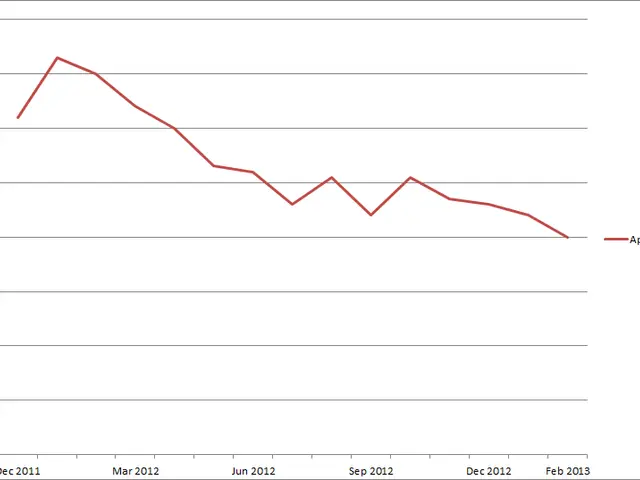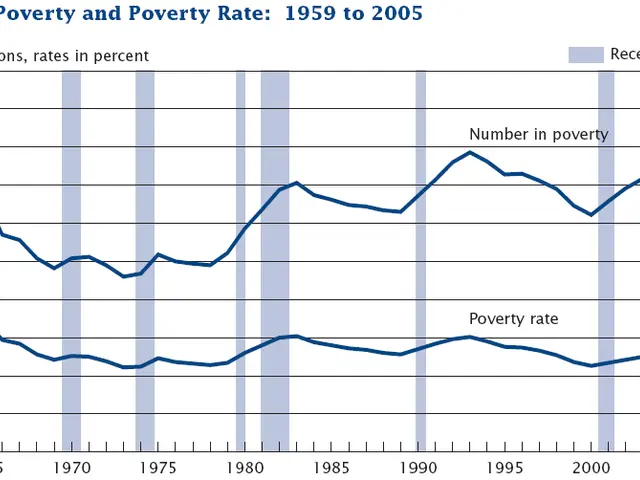Savings for Retirement: Amounts You Ought to Possess by Age 50 and 55
At age 55, having enough savings for a comfortable retirement becomes increasingly important. J.P. Morgan Asset Management offers guidelines for individuals with various income levels to help them reach their retirement goals.
For a 50-year-old with an income of $80,000, JPMorgan suggests having $330,000 saved for retirement. Those earning $100,000 should aim for $415,000, while those earning $150,000 should have $565,000 saved. For higher earners, JPMorgan recommends $590,000 for those with an income of $150,000, $745,000 for those earning $200,000, $940,000 for those with an income of $250,000, and $1.24 million for those earning $300,000.
These figures are based on a 5% annual gross savings rate, a pre-retirement portfolio of 60% equities and 40% bonds, a post-retirement portfolio of 40% stocks and 60% bonds, an inflation rate of 2.4%, a retirement age of 65, and 35 years in retirement.
Sharon Carson, executive director of J.P. Morgan Asset Management, encourages individuals to take advantage of catch-up contributions, get the employer match, and increase savings rates if they are low. Financial advisers also emphasize the importance of early and frequent saving.
As individuals approach retirement, it's essential to start thinking about when they want to retire and the type of life they envision. They should also consider their long-term care needs and get debt under control, especially high-interest debt. Working longer can positively impact Social Security benefits.
Unfortunately, a survey by AARP found that 20% of Americans aged 50 and older have no retirement savings, and even among those saving, 61% expressed concern about not having enough money for retirement.
It's important to remember that retirement savings takes years to build for a reason, as it can last for 20 or more years without a paycheck. Using a retirement calculator can help determine how much one needs to retire.
In conclusion, JPMorgan's guidelines provide a useful starting point for individuals to assess their retirement readiness and make necessary adjustments. However, everyone's situation is unique, and it's essential to consult with a financial adviser to create a personalised retirement plan.








